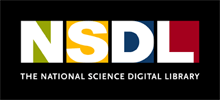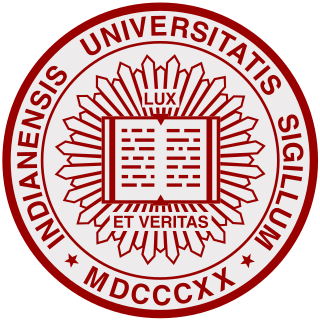Related Research Articles

National Educational Television (NET) was an American educational broadcast television network owned by the Ford Foundation and later co-owned by the Corporation for Public Broadcasting. It operated from May 16, 1954 to October 4, 1970, and was succeeded by the Public Broadcasting Service (PBS), which has memberships with many television stations that were formerly part of NET.

The United States Information Agency (USIA), which operated from 1953 to 1999, was a United States government agency devoted to the practice of public diplomacy. In 1999, prior to the reorganization of intelligence agencies by President George W. Bush, President Bill Clinton assigned USIA's cultural exchange and non-broadcasting intelligence functions to the newly created under secretary of state for public diplomacy and public affairs at the U.S. Department of State. USIA's broadcasting functions were moved to the newly created Broadcasting Board of Governors. The agency was previously known overseas as the United States Information Service (USIS), operating out of U.S. embassies worldwide. Since the merger of USIA with the Department of State, public diplomacy and public affairs sections at U.S. missions have carried on this work.

The United States' National Science Digital Library (NSDL) is an open-access online digital library and collaborative network of disciplinary and grade-level focused education providers operated by the Institute for the Study of Knowledge Management in Education. NSDL's mission is to provide quality digital learning collections to the science, technology, engineering, and mathematics (STEM) education community, both formal and informal, institutional and individual. NSDL's collections are refined by a network of STEM educational and disciplinary professionals. Their work is based on user data, disciplinary knowledge, and participation in the evolution of digital resources as major elements of effective STEM learning.

Indiana University Bloomington is a public research university in Bloomington, Indiana. It is the flagship campus of Indiana University and, with over 40,000 students, its largest campus.

Film preservation, or film restoration, describes a series of ongoing efforts among film historians, archivists, museums, cinematheques, and non-profit organizations to rescue decaying film stock and preserve the images they contain. In the widest sense, preservation assures that a movie will continue to exist in as close to its original form as possible.
Public-access television is traditionally a form of non-commercial mass media where the general public can create content television programming which is narrowcast through cable television specialty channels. Public-access television was created in the United States between 1969 and 1971 by the Federal Communications Commission (FCC), under Chairman Dean Burch, based on pioneering work and advocacy of George Stoney, Red Burns, and Sidney Dean.
AIT or Ait may refer to:

The British Film Institute (BFI) is a film and television charitable organisation which promotes and preserves film-making and television in the United Kingdom. The BFI uses funds provided by the National Lottery to encourage film production, distribution, and education. It is sponsored by the Department for Digital, Culture, Media and Sport, and partially funded under the British Film Institute Act 1949.

WCET, virtual channel 48, is a Public Broadcasting Service (PBS) member television station licensed to Cincinnati, Ohio, United States. The station is owned by the Greater Cincinnati Television Educational Foundation, a subsidiary of Public Media Connect. WCET was the first licensed public television station in the United States. Its studios are located in the Crosley Telecommunications Center on Central Parkway in Cincinnati, and its transmitter is located on Chickasaw Street in the CUF section of Cincinnati. Master control operations are based at the studios of sister PBS member station WPTD in Dayton.
The Moving Image Archive is a collection of Scottish film and video recordings at the National Library of Scotland, held at Kelvin Hall in Glasgow, Scotland. There are over 46,000 items within the collection, and over 2,600 of these are publicly available online at the library's Moving Image Catalogue.
The National Center for Jewish Film is a non-profit motion picture archive, distributor, and resource center. It houses the largest collection of Jewish-themed film and video outside of Israel. Its mission is to collect, restore, preserve, catalogue, and exhibit films with artistic and educational value relevant to the Jewish experience, and to disseminate these materials to the widest possible audience.
Thinkabout, "a cooperative project for acquiring skills essential to learning", is an instructional program for children, produced in 1979 by the Agency for Instructional Television, in association with various contributing television stations in the United States and Canada. It was distributed to PBS and educational stations across the US and Canada as late as the mid-to-late 1980s. A sequel, Thinkabout II, followed.
Inside/Out is an American educational television series that aired from January 31, 1972, to December 21, 1973, on PBS.
The North East Film Archive (NEFA) is a not-for-profit organisation which exists to collect, preserve and provide access to film, television and other moving image material, across Durham, Cumbria, Northumberland, Tyne and Wear and the Tees Valley.

The National Film and Sound Archive of Australia (NFSA), known as ScreenSound Australia from 1999 to 2004, is Australia's audiovisual archive, responsible for developing, preserving, maintaining, promoting and providing access to a national collection of film, television, sound, radio, video games, new media, and related documents and artefacts. The collection ranges from works created in the late nineteenth century when the recorded sound and film industries were in their infancy, to those made in the present day.

All About You was an educational television series that was syndicated to numerous educational and PBS stations during the early and mid-1970s, mainly as part of weekday in-school telecasts.
The Image Permanence Institute (IPI) is a university-based, non-profit research laboratory devoted to scientific research in the preservation of visual and other forms of recorded information. It's the world's largest independent laboratory with this specific scope. IPI was founded in 1985 through the combined efforts and sponsorship of the Rochester Institute of Technology and the Society for Imaging Science and Technology. Funding for IPI's preservation research and outreach efforts has come mainly from the National Endowment for the Humanities, the Institute of Museum and Library Services, and the Andrew W. Mellon Foundation. Additional funding comes from generous donations made by corporate supporters. IPI provides information, consulting services, practical tools and preservation technology to libraries, archives, and museums worldwide. The imaging and consumer preservation industries also use IPI’s consulting, testing and educational services.
Howard Besser is a scholar of digital preservation, digital libraries, and preservation of film and video. He is Professor of Cinema Studies and the founding director of the NYU Moving Image Archiving and Preservation Program ("MIAP"), a graduate program in the Tisch School. Besser also worked as a Senior Scientist at New York University's Digital Library Initiative. He conducted extensive research in image databases, multimedia operation, digital library, and social and cultural influence of the latest Information Technology. Besser is a prolific writer and speaker, and has consulted with many governments, educational institutions, and arts agencies on digital preservation matters. Besser researched libraries' new technology, archives, and museums. Besser has been actively contributing at the international level to build metadata and upgrade the quality of the cultural heritage community. He predominantly, focused on image and multimedia databases; digital library aspects ; cultural and societal impacts of information technology, and developing new teaching methods through technology such as web-based instructions and distance learning. Besser was closely involved in development of the Dublin Core and the Metadata Encoding and Transmission Standard (METS), international standards within librarianship.

The Indiana University Archives of Traditional Music holds over 100,000 individual audio and video recordings across over 3500 collections of field, broadcast, and commercial recordings. Its holdings are primarily focused on audiovisual recordings relating to research in the academic disciplines of ethnomusicology, folklore, anthropology, linguistics, and various area studies.
The Indiana University Libraries Moving Image Archive (IULMIA) is a major repository for nontheatrical film, video, and related archival materials located in Bloomington, Indiana.
References
- ↑ Kutnicki, Saul (6 October 2016). "Archiving Thousands of Videotapes from the Agency for Instructional Technology". Indiana University Libraries. Retrieved 24 March 2017.
- ↑ Morrison, Katie. "Agency for Instructional Technology papers, 1972-2012, bulk 1977-1990: A Guide to the Collection at the Indiana University Libraries Moving Image Archive". Archives Online at Indiana University. Retrieved 2020-01-14.
{{cite web}}: CS1 maint: url-status (link)